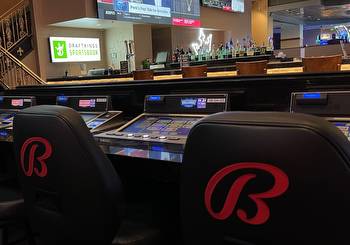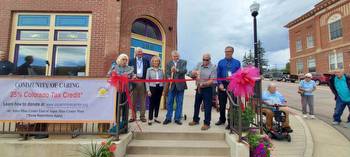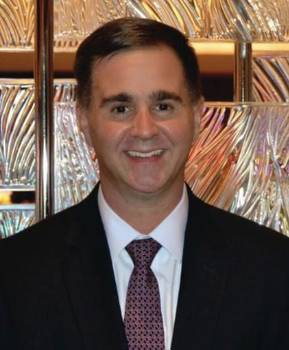STAFFORD: Colorado casino community system works for everyone
We’re lucky in Colorado to have so many natural and manmade wonders to escape to when we need to just get away. From some of the most popular hiking trails in the country to hidden micro-breweries, there’s always something to do. That explains why so many people move here to improve their quality of living.
Maintaining our quality of life is a big piece of protecting our mental health. In a recent Colorado Health Foundation poll, 55% of respondents said they’ve experienced increased anxiety in the last year, and 50% of parents say their children have experienced increased stress and anxiety. We depend on our communities to help us maintain our mental well-being during these times of added strain.
In Colorado, we’re lucky to have a say in how our communities show up for us. In Black Hawk, Central City and Cripple Creek, the community voted to support casinos and gambling. As the rest of the state continues to reject expanded gambling in towns and racetracks, the entertainment destinations have dedicated the resources needed to support the industry. Their success may be a tempting model for lawmakers to try to replicate statewide, through measures like video gambling, but that would be a mistake for our mental health and community well-being.
Casinos in the three gaming towns have contributed nearly $86 million in taxes already this year. That’s money destined for our community colleges, historical preservation and state general fund. With the recent voter action in 2020 through Amendment 77 to let these towns raise betting limits and add games to the floor, like baccarat, keno and expanded table offerings, more tourists are taking advantage of our gaming communities. That’s great news for all of us.
We can escape to these mountain gambling hubs if that’s how we want to get away. For those who don’t participate, it’s great to have some distance between where they live and work, and Colorado’s casinos. We can vote to keep our communities free of casino-like games and maintain them for our collective day-to-day lives. Colorado communities have made it clear time and time again that expanding gambling creates too much of a good thing.
It also means we can direct resources in our everyday communities to where we most need it, and not to managing casino-style gaming within our neighborhoods. That puts gambling too close to home, especially as we try to manage increased stress and anxiety with healthy strategies and model these healthy coping measures for our children.
Our mountain gaming towns do an admirable job of preventing kids from gambling and enforcing all applicable laws and regulations. Their commitment to responsible gambling keeps our families safe.
Casino-style gambling doesn’t have a place statewide. Staff shortages across industries, including law enforcement strain community resources to provide the necessities for citizens, let alone regulating an entirely new risk factor.
A majority of Colorado’s bar and restaurant owners opposed the expansion of Keno Kiosks to their establishments when the state’s Attorney General’s office raised the proposal in 2021. Many doubted the value of these gaming machines to their customers, and the added responsibilities and cost of training their employees to operate and service Keno Kiosks would be significant.
In Illinois, which authorized widespread video gambling in 2009, regulatory expenses far exceeded state expectations, further reducing the benefit of video gambling funds to beneficiaries.
Addiction’s impact on individuals, their families and their quality of life can be destructive – not just in the present, but for future generations, too. Many turn to drinking, substance abuse, smoking or other unhealthy coping mechanisms while experiencing the highs and lows of gambling. Then, no matter the outcome, this vicious cycle repeats, as gamblers look for their next big win.
Expanding gambling access to Coloradans will provide more opportunities for gambling to become problematic in our communities. Law enforcement interaction is more likely at that point, increasing strain on local law enforcement agencies who are also facing recruitment and retention challenges.
Mental health care is already underfunded in Colorado, and the negative effects of gambling will only increase the risk of addiction across the state. Instead of expanding gambling, Colorado should focus on instituting earlier education and information programs about the impact of addiction and destructive coping skills. Stress management programs have the ability to positively change behavior for generations to come.
The risks to the health of our communities aren’t worth it, especially when Black Hawk, Central City and Cripple Creek have worked hard to build world-class get away destinations in Colorado’s scenic mountains.
Debbie Stafford is a former Colorado State Representative and a longtime domestic violence and addictions counselor.


































